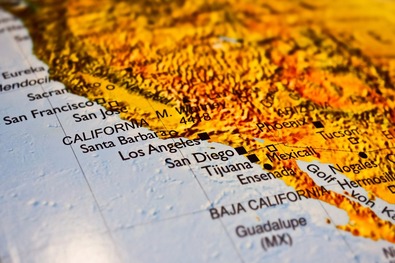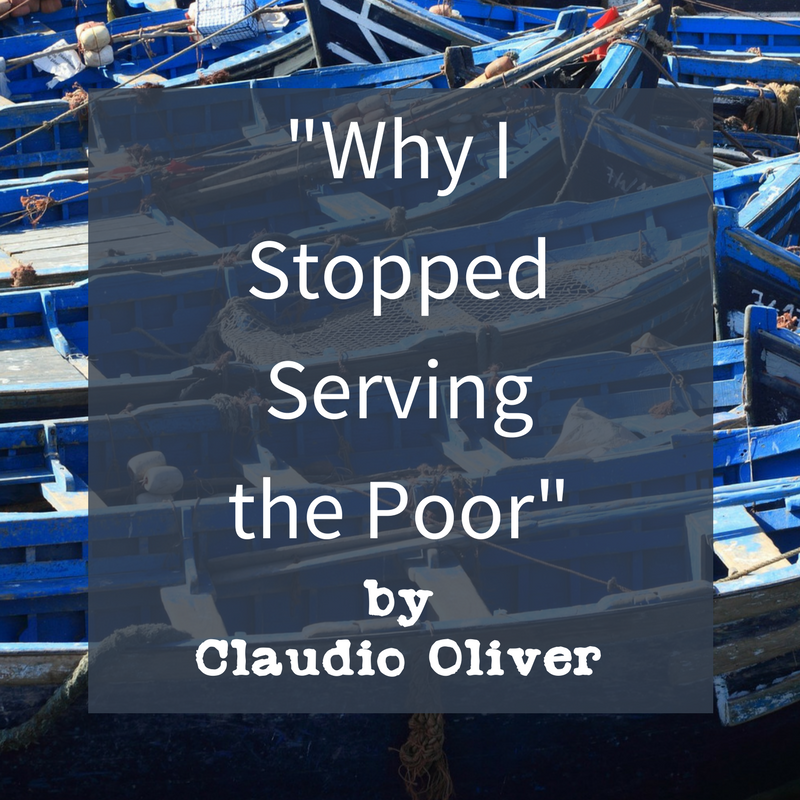|
This guest post is written by Eliza Stewart. Eliza (she/her) is a young South African with a USA passport taking a year between high school and the rest of her life to do some travelling, learning, and listening.  What does it mean to travel to a place, not to consume it, but just to be there? I don’t want to go somewhere because I feel entitled to because my mom was born within the borders of the “USA” and I have access to it legally because of my passport. I want to think about the places I’m going beyond what they can do for me and my gap year. I will grow more from my gap year if it is not completely focused on me, which might seem ironic to those of us who’ve been taught gap years are meant for us to find ourselves. I just finished reading Harsha Walia’s book Border & Rule, a book which investigates the function of borders - politically, socially, culturally and economically. And as a South African currently traveling in the USA so much around me has me thinking about borders. Thinking about how easily I move through borders. Thinking about why I am, because of my identity as a white person and a USA citizen, permitted to move so easily through borders. Thinking about the whole system. As a child you don’t really think about countries and borders and the whole system as anything but natural, but Walia and others have shown me a different way. Walia explains that the function of borders is to restrict the movement of people, while the movement of capital and goods is ensured. People are declared illegal, while the surplus value they produce never is. Humans and land are turned into commodities (made for exchange). The conversion of land into property is directly related to the conversion of people into property. Movement across borders, legal or illegal, is used in service of capitalists to accumulate capital. The border does not work against globalised capital, it works in service of it. Free capital requires bordered and immobilised labour. She says: Borders do not protect labor; the border is a bundle of relations and mode of governance acting as a spatial fix for capital to segment labor... Simply put, borders manufacture divisions within the international working class. Borders are exploited by the class-conscious ruling class through outsourcing and insourcing to weaken collective bargaining rights and working-class resistance to transnational capital and its austerity measures. One of my favourite YouTubers, Saint Andrew, quotes in his Abolish Borders video “The border is not just a wall. It’s not just a line on a map. It’s not any particular physical location. It’s a power structure, a system of control. The border is everywhere that people live in fear of deportation, everywhere migrants are denied the rights accorded citizens, everywhere human beings are segregated into included and excluded. The border does not divide one world from another. There is only one world, and the border is tearing it apart… In our ‘free’ and ‘post-colonial’ world what was once the norm is now criminalized...There is nothing necessary or inevitable about borders.” One example where this is happening is in Hawai’i. Indigenous Hawai’ians have been saying that they don’t want tourists on their land, especially right now. Hawai’ians are being asked to reduce their water usage due to intense water shortages while tourists are allowed to move freely over the land consuming and consuming. Hawai’i is seen as nothing but a pretty backdrop, and the people props, for vacations. It is the most basic level of respect to not travel to Hawaii right now, yet thousands of tourists are. I don’t want to be like them or think like them that I am entitled to go somewhere just because the border allows me to. (This is an amazing video from Haunani-Kay Trask that shows her response to the US American occupation of Hawai’i and her identity as a Hawai’ian). When I am old, I will tell you I remember learning about freedom beyond anthems and passports. And how we never went back once we knew the kind of love bound only by shorelines, prairie skies, and forest floors.” How do I travel through the world as one member of the tiniest group that has open access to the world’s borders? How do I travel not just being aware of the power I have because of how I am racialised, but as someone humbly coming into spaces as a guest? How do I interact with the world with all of these thoughts of borders, and entitlement, and division coming together? I don’t want to be an entitled traveler. I don’t want my gap year to be predatory. I don’t want to gain my own feelings of independence and growth through the harm of others. I don’t want people and places to just serve as props for my journey. I just don’t really know how to do this well. “In this new space one can imagine safety without walls, can iterate difference that is prized but unprivileged, and can conceive of a third, if you will pardon the expression, world ‘already made for me, both snug and wide open, with a doorway never needing to be closed.’ Home.” If you have thoughts about any of this, I would love to hear and discuss, email me [email protected] or message me on IG @lizatiser.
0 Comments
|
Gena's
|

 RSS Feed
RSS Feed

